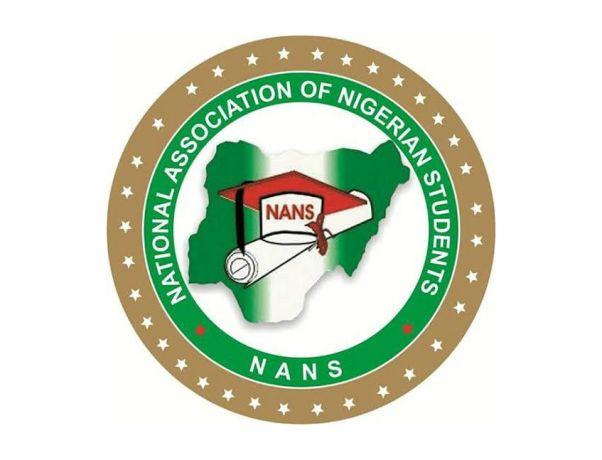President Muhammadu Buhari has approved the withdrawal $462 million from the Excess Crude Account (ECA) to the United States for the procurement of 12 Super Tucano aircraft, without a prior approval of the National Assembly, This Day newspaper has reported.
A new letter by the president to the National Assembly, says the U.S. government had given a payment deadline for the aircraft purchase, hence, the need for the hasty approval and payment.
Buhari transmitted the letter to the National Assembly leadership on April 13 and it was received in the Office of the Speaker of the House of Representatives on April 17.
The letter shows that Buhari had already given anticipatory approval for the withdrawal of $496,374,470 (N151 394, 421, 355) from the ECA for the purchase of the aircraft and was only seeking the inclusion of same in the 2018 Appropriation Bill that the National Assembly is currently finalising.
The date on the letter indicated that the President had given approval for the withdrawal of the cash and paid before a public announcement of the approval, ThisDay reports.
The Offices of the senate president, Bukola Saraki, and the speaker of the House of Representatives, Yakubu Dogara, did not respond to requests for comment Monday.
According to ThisDay, Buhari’s letter reads, “I wish to draw the attention of the House of Representatives to the ongoing security emergencies in the country. These challenges were discussed with the state governors and subsequently, at the meeting of the National Economic Council on 14th December, 2017, where a resolution was passed, with the Council approving that up to US$1 billion may be released and utilised from the Excess Crude Account to address the situation.
“Subsequent upon this approval, we are preparing a comprehensive schedule of all the requirements for each of the security services for presentation to the National Assembly for consideration.
“It would be recalled that, for a number of years, Nigeria had been in discussions with the United States Government for the purchase of Super Tucano Aircraft under a direct Government-to-Government arrangement. Recently, approval was finally granted by the United States Government, but with a deadline within which part payment must be made otherwise, the contract would lapse.
“In the expectation that the National Assembly would have no objection to the purchase of this highly specialised aircraft, which is critical to national security, I granted anticipatory approval for the release of US$496,374,470.00. This was paid directly to the treasury of the United States Government.
“I am therefore writing, seeking approval of this House for the sum of US$496,374,470.00 (equivalent to N151,394,421,335.00) to be included in the 2018 Appropriation Bill, which the National Assembly is currently finalising. The balance of the requirements for critical operational equipment is still being collated from the different security services and will be presented in the form of a Supplementary Appropriation Bill, in due course.
“The Honourable Minister of Defence and other appropriate officers will be available to provide further details, as may be required.
“While thanking the Honourable Members for the usual cooperation, please be assured Mr. Speaker, the assurance of my highest regards.”
The letter also proved false several claims that Mr President did not give a final approval before the announcement.
The Minister of Defence, Mansur Dan Ali, while speaking with journalists at the end of a security meeting chaired by the president on April 4, announced that Mr Buhari had approved the release of $1 billion to Nigerian Defence authorities for the purchase of security equipment to fight insecurity in the country.
“Of recent, our leader, President Muhammadu Buhari, gave approval for the purchase of more equipment for the military, worth $1 billion,” he said.
The announcement was greeted by criticism by Nigerians who questioned the federal government for earmarking such huge amount for Boko Haram it claimed has been ‘technically defeated.’
Few days later, Mr Buhari’s aide took turns to defend him, saying that the president cannot approve such fund without go ahead from the National Assembly.
First was the President’s Senior Special Assistant, Media and Publicity, Garba Shehu, who said the approval is not final as it signifies only a stage approval while the process is still ongoing.
Also, the Special Adviser to the President on Media and Publicity, Femi Adesina, said the president would soon communicate the National Assembly on the issue.
The withdrawal is a breach on the Sections 80 (3) and (4) of the 1999 Constitution which states that:
“(3) No moneys shall be withdrawn from any public fund of the Federation, other than the Consolidated Revenue Fund of the Federation, unless the issue of those moneys has been authorized by an Act of the National Assembly.
“(4) No moneys shall be withdrawn from the Consolidated Revenue Fund or any other public fund of the Federation, except in the manner prescribed by the National Assembly.”
Premium Times

 Boss Picks4 days ago
Boss Picks4 days ago
 Opinion6 days ago
Opinion6 days ago
 Events5 days ago
Events5 days ago
 Opinion4 days ago
Opinion4 days ago
 Adding Value5 days ago
Adding Value5 days ago
 Featured5 days ago
Featured5 days ago
 News5 days ago
News5 days ago
 Headline3 days ago
Headline3 days ago














